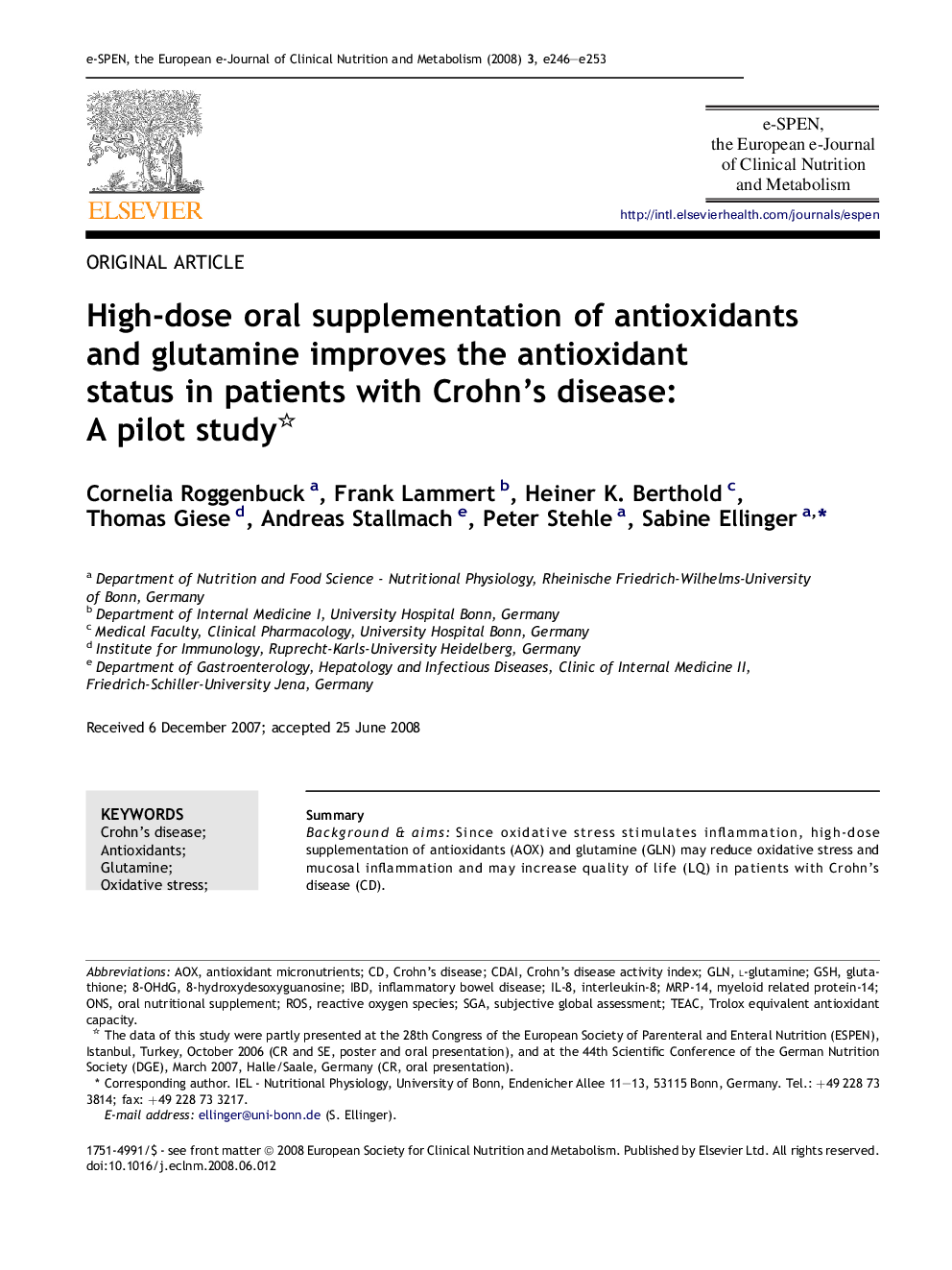| Article ID | Journal | Published Year | Pages | File Type |
|---|---|---|---|---|
| 2689794 | e-SPEN, the European e-Journal of Clinical Nutrition and Metabolism | 2008 | 8 Pages |
SummaryBackground & aimsSince oxidative stress stimulates inflammation, high-dose supplementation of antioxidants (AOX) and glutamine (GLN) may reduce oxidative stress and mucosal inflammation and may increase quality of life (LQ) in patients with Crohn's disease (CD).MethodsWithin a bicentric pilot study, six patients with CD (median CDAI 139) ingested 2 × 200 ml/day of an oral nutritional supplement (ONS) rich in AOX and GLN for 4 weeks in additional to their basic medication. Before and after intervention, antioxidant status and antioxidant capacity were determined in plasma and markers of oxidative stress in plasma and leukocytes. Glutathione and transcripts of interleukin-8 (IL-8) and myeloid related protein-14 (MRP-14) were measured in the gut mucosa and LQ was determined by the inflammatory bowel disease questionnaire.ResultsVitamin C, E, β-carotene, selenium and antioxidant capacity increased (all p < 0.05). Peroxides decreased (p = 0.043), whereas further markers of oxidative stress did not change. Glutathione of the inflamed mucosa increased (p = 0.043), but IL-8- and MRP-14-mRNA were unchanged. Overall, LQ increased significantly (p = 0.027).ConclusionsAn ONS rich in AOX and GLN may improve antioxidant status both in plasma and in the inflamed mucosa in patients with CD. Although the effects on oxidative stress and mucosal inflammation are not clear, these results encourage placebo-controlled studies.
